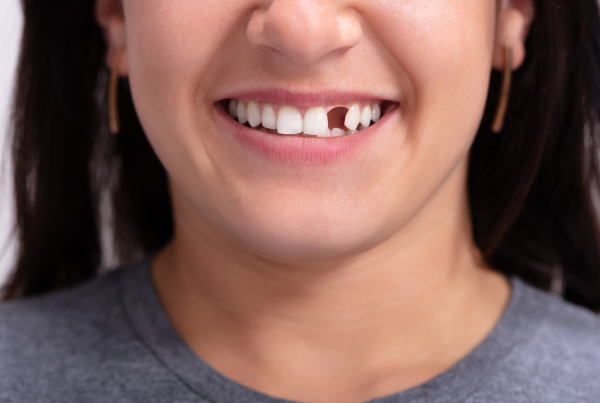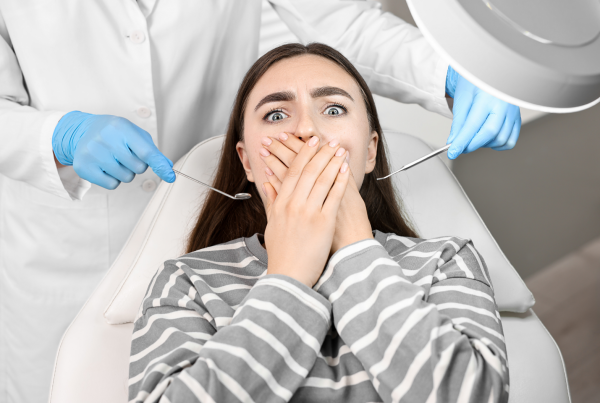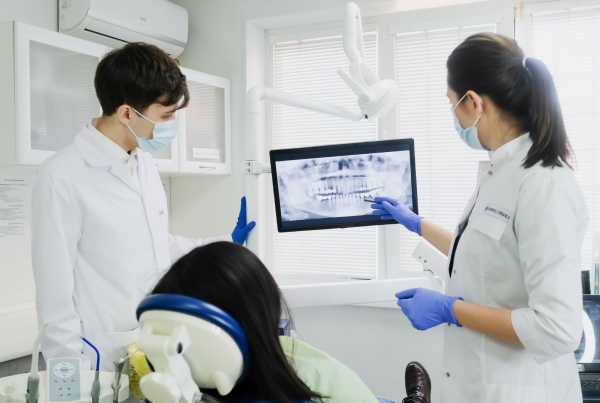If you have recently begun waking up with chronic headaches, then your teeth might be to blame. Bruxism is a condition where people clench and grind their teeth, usually subconsciously during sleep. It’s a habit that can create enormous stress on teeth and jaws, potentially causing pain that may radiate outwards from your jaws, affecting your face, your neck and shoulders and which can even cause a dull headache that begins around your temples.
When you clench and grind your teeth, the pressure placed on your jaw joints, which are called your temporomandibular joints can cause a condition that is called temporomandibular joint disorder or TMD. This creates pain in your jaw muscles as they become inflamed and sore.
As this problem generally occurs during sleep, it can be difficult to know if you have bruxism and TMD, but in addition to headaches, it can cause other symptoms which include:
- Waking up with an aching jaw or tired jaw muscles
- Noticing your jaw makes a clicking or even a popping sound when you try to open or close your mouth
- Your teeth may feel more sensitive than normal
- You might notice your teeth look shorter and more worn down then you remember
- When you have bruxism it’s not uncommon for teeth to become chipped, fractured or even to become loose
- Waking up having discovered you’ve bitten the inside of your cheeks
- Your sleep could be disrupted because bruxism is sometimes linked to other sleep disorders such as sleep apnea
If any of these symptoms sound familiar, it could be a good idea to book an appointment with Dr. Sarah Harland or Dr. Tom Greene here at Tsawwassen Place Dental. Our dentists are specially trained to examine your teeth and jaw joints and to determine if you have this problem.
It’s important to get a proper diagnosis and treatment because of the potential damage it can cause to your teeth and jaw joints, and of course it’s very unpleasant to keep waking up with headaches.
Getting the Right Treatment
Generally, this condition can be treated by fitting you with a custom-made night splint. This is usually made from a hard, thermoplastic material and is designed to fit over your upper teeth. It prevents your teeth from coming into contact as the splint will have a smooth biting surface so that your lower teeth bite harmlessly against it.
You will be shown how to insert the splint and how to look after it. Initially, your night splint might feel a little strange which is perfectly normal when wearing any new dental appliance. Persevering will soon help it feel more comfortable and more natural to use. Some people will only need to wear a night splint for a relatively short while as using it can help break the habit of bruxism. Other people may benefit from wearing it in the longer term.
Restoring Teeth Damaged by Bruxism
If your teeth have been damaged by teeth grinding and clenching, then our dentists can devise a suitable treatment plan to restore your dental health using the very latest techniques and materials. These treatments will help to protect teeth against infection and decay while restoring their appearance and function.
If waking up with a headache has become a familiar theme, then don’t suffer in silence as if your teeth are to blame, we can quickly diagnose this problem. Contact us to request an appointment.
* Source: Sleep Association sleepassociation.org





